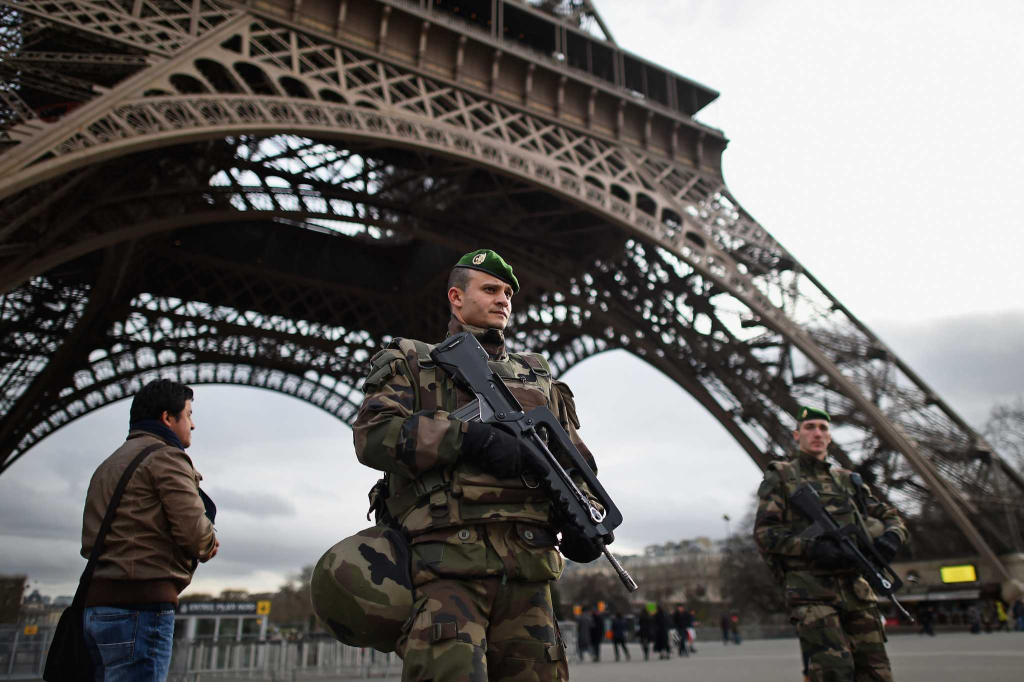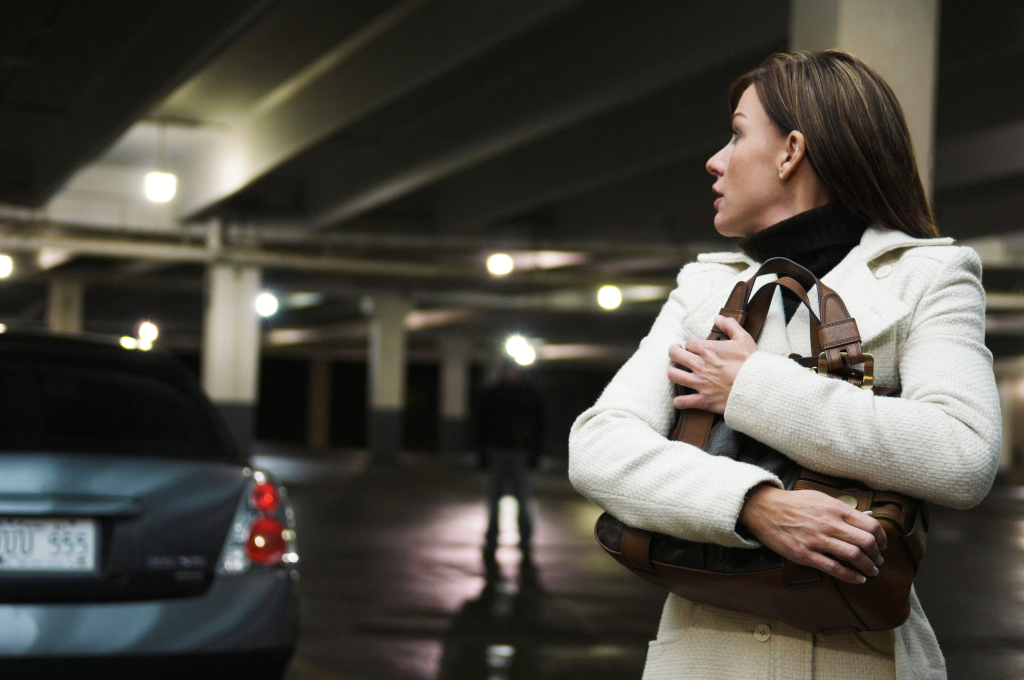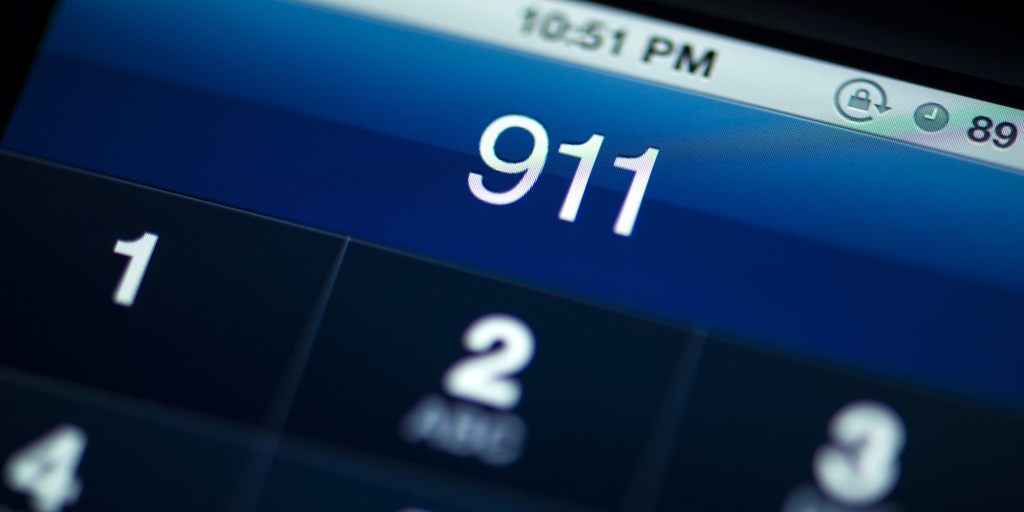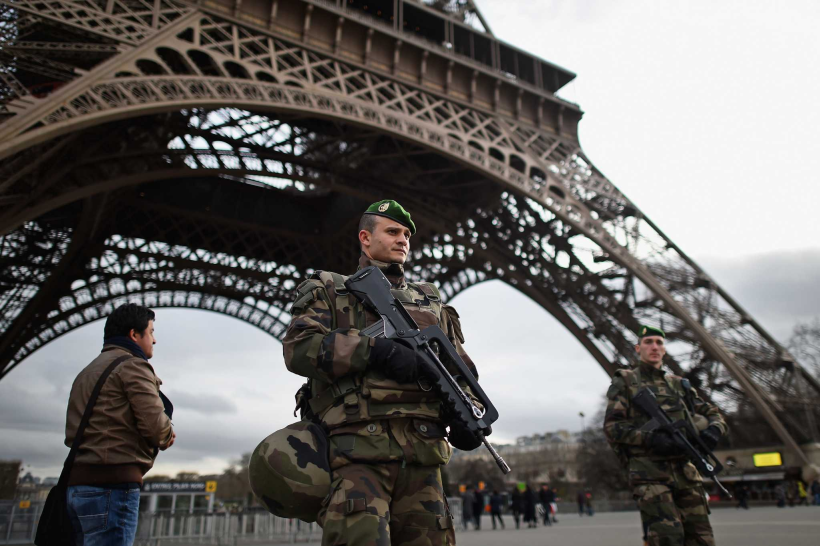
UPDATE (11-16-15 1630 hours): Two more Situational Awareness Tips (#17 & 18) have been added to the list.
The Paris Attacks
For those who might be unaware: on Friday, November 13th, 2015, five simultaneous terrorist attacks that took place throughout Paris claimed the lives of nearly 150 people, leaving more than 350 injured. The attacks have been determined to have been carried out by the jihadist extremist group known as ISIS/ISIL/IS/Daesh, contributing to the unfortunately increasingly frequent bloodshed due to this global terrorist group. We here at EAF believe we can speak for just about everyone out there in saying that we are horrified by these assaults & issue our best wishes & utmost support to those affected by these attacks. Unfortunately, this has not been an isolated incident.
It is in times like these that the public eye gets drawn back to the atrocities carried out by these types of terrorist organizations; however, we need to recognize that these kinds of things are happening ridiculously often nowadays…unfortunately it is only when these events make the news that we re-identify this persistent threat to our collective safety & livelihood. Case in point: on Monday, November 9th, 2015, ISIS executed 200 Syrian children by way of firing squad. How many of our readers ever heard of this happening?
This problem is only getting worse & it is about time the global community banded together, completely regardless of nationality/race/cultural heritage/religion/whatever & began to lay down hard action in response to these groups. We are all in this together. These deplorable thugs need to begin to experience the consequences to their actions, with those consequences coming from punishment dealt out from a global union that is ready to step up combat actions & stop hiding behind the veil of bureaucratic red tape & politically gentile “diplomatic solutions”. If diplomacy worked with these types of monsters, these types of terrorist “organizations” would have never arisen in the first place. But enough of this, proper counter-terrorism & counter-insurgency strategy is another topic for another day, in a different setting, as that is not what our readers are here for.
Having said that, we want to be able to help out our readers somehow in these uncertain times, so today we are going to talk about two words that we hope everyone will attempt to become intimately familiar with: situational awareness.

Situational Awareness
Situational awareness is essentially exactly what it sounds like (being aware of the situations around you) & can go a long way towards saving your life, as well as those of the people around you. This is not to say that practicing what situational awareness entails will keep you 100% safe, 100% of the time…it is important to recognize the fact that at any given moment, your safety can be compromised & proper situational awareness comprises tactics that can help you to anticipate threats & react to them for the best outcome possible. Great. Sounds good. Now how can we convey this type of knowledge? Situational awareness is not something where you can read an article (like this one) & then walk away an expert in the subject, rather proper situational awareness training consists of changing the way you think & always aiming to continue re-evaluating how you think about your surroundings & to better learn how to adapt to changing situations…just as threats are constantly changing & evolving, so must your situational awareness tactics.
Situational Awareness Tips
To start us off, we’re going to just give a list of tips that can help you to be more aware in everyday life. Please, be sure to read through the list, as these kinds of habits have absolutely saved lives in the past & will continue to save lives in the future. This article is without-a-doubt worth the 10 or so minutes it takes to read.
- Identify elements in play around you. Just as when you were learning to drive, the instructor cadre drilled into your head how important it was to know your surroundings (i.e. if there’s a stop sign a block away, a child playing next to the street, backup lights coming from a driveway, etc.), it is inconceivably important for you to be aware of who/what is around you & what is going on with those people or things. For example, if you are standing in line at a gas station in a bad part of town, you should know how many people are in your immediate surroundings, if any of those people look sketchy, their dispositions (as well as physical positions relative to you), etc.
- Prediction of events around you before they unfold is key. Use what you know about human nature to anticipate people’s actions. If you were on the freeway in traffic & a car came flying past you doing twice the speed of traffic, you would probably be able to predict that the car was going to have to brake hard to avoid an accident…hopefully you would begin to apply your brakes & check your mirrors in anticipation. The same thing goes for interactions with people in everyday life. You are a human. You know how humans act, so you ought to be able to see a situation before it arises. Be confident in your ability to do this.
- Develop an understanding of body language. The physical mechanics necessary for any threat to unfold mean that there is almost always some sort of sign that something is about to happen. To clarify this, suppose you were a bank robber & you were the one in charge of blocking the exit once the robbery began. In order to do your part of the heist, you would need to position yourself near the exit, you would likely be avoiding eye contact & hiding your face from the cameras, you would probably be pivoting your body partially toward your area of responsibility, perhaps even positioning your hand near the small of your back where you might have a weapon…all dead giveaways to the keen observer. Being able to read body language properly can tell you a ton about any given situation & is helpful in other avenues of life as well, such as knowing when someone is uncomfortable or whether or not you are maintaining someone’s interest.
- Trust your gut. If someone/something is making you feel uneasy, then there is likely a reason for that. We are not telling you to be paranoid, but if you are getting a bad vibe from someone or a situation is making you really nervous, trust those instincts, as it is better to be safe than sorry.

Wearing a watch to keep time can help keep you safe. Photo Credit: production-scheduling.com - Buy a watch. Any and all events in life take time to unravel. Knowing how much time has passed, what time of day it is, etc. can go a long way towards keeping you safe. If you were with a friend & that friend went to throw something out in the alleyway behind the gym & by checking your watch you realize that five minutes has gone by, there is a chance that something could have gone wrong. Likewise, if you live in a gang-infested neighborhood & know that some of those guys like to hang out in front of some liquor store at the same time every day, knowing the time of day can help you decide to perhaps wait until some other time to pass by that store. Knowing the time can also help you to keep to schedule in light of unexpected events. Remember: stress/anxiety tend to distort time…a watch can help you to avoid/mitigate this.
- Know your limits. This does not just mean know what kind of situations you can safely respond to, but also means know your limits with respect to as many things as possible. If you go out to the bar with a few friends, be responsible & know where your limits lie so that you can stay inside of them & react properly to a dangerous situation if one should arise. If you find yourself really tired or sick or not 100% in anyway throughout the day, have the wit to recognize that you are not as capable of reacting to possible threats as you usually are nor as observant as usual & so while you should always avoid bad situations when you can, this goes doubly if you are not at your strongest physically/mentally/emotionally. You should also be aware of these types of fatigue effects in those around you.
- Remain vigilant, but be able to discriminate between what is important & what is not. As you have probably heard in various contexts, complacency kills. This can have a very literal meaning in bad situations. Just because you already examined your surroundings once does not mean that you are now permanently safe. Once again: situations & threats are dynamic & constantly evolving, thus you need to maintain a constantly refreshed picture of what’s going on around you. This does not mean you need to know every single detail of what’s going on around you, but rather be smart about what you take notice of. The lady texting on the bench with her 5 year old in the sandbox should draw less of your attention than the man sitting in his car awkwardly watching the playground. Also, this does not mean that you should necessarily be like one of those desktop bobble head toys, but you should glance around from time to time & further more, you can use this next tip to your great advantage.
- Learn to use your peripheral vision. When you focus purely on your direct line of sight, you can miss a possible threat in your periphery; thus, maintaining awareness of your full field of vision can help you to anticipate possible threats or threatening situations. Using this peripheral vision can also help to actively monitor your surroundings, as hinted to at the end of the last tip.
- PUT YOUR PHONE DOWN & PAY ATTENTION. If you are walking with your face glued to the screen of your phone, you are likely to miss a whole lot. If you absolutetly have to use your phone while walking around, glance up often & look around/behind you & maintain good peripheral vision while looking at the phone screen.
- Watch your six. For those unfamiliar with this popular fighter pilot-originated jargon, watch your back. Threats that come unseen from behind can be some of the most dangerous. If you’re standing in a long line, try to keep your back up against a wall or other barrier. If you go to sit down at a table & there are multiple seating options, choose the one with the least amount of open space/windows behind it & the most comprehensive view in front of it. When you are in a crowd, try to maintain gap separation behind you, after all, you do not have eyes in the back of your head.
- Make up for not having eyes in the back of your head. It would be great if you could walk down the street spinning circles, constantly aware of everything around you, but this could be quite dizzying, increase your chances of tripping over yourself, & could cause someone to call the police to come get the psycho spinning circles down the sidewalk (you). How can we compensate for this? Much as they are for fish, shiny objects are your friends. If walking through a parking lot, glance in the reflection off a car door or window to see if you are being followed. Storefront windows, shiny lightposts, & the unlit screen of your cellphone also work great for this.

Call 911/the police if you are being followed or in a really bad situation. Photo Credit: huffingtonpost.com - If you think you’re being followed, act like you don’t know what you’re doing. If someone has been walking behind you a while, stop, cross the street, back track a few yards, then turn around and continue on your way. What are the chances of someone else making those same moves if they’re not following you? Pretty slim. Same thing works for driving. If you think you’re being followed, drive like you don’t know where you’re going (within the bounds of safe driving & the law, of course) & see if the suspicious vehicle does the same. If you are being followed, there are two excellent ways to shake a tail (follower) that you are perfectly capable of without being tactically skilled. One: Walk into a police department, bank, city/government building, or other place with excellent security (DO NOT walk into a super-crowded, low security place like a street market). Two: If you feel that you are in danger, call the police (remember, they are there to protect you), give them your location, stay on the phone with them, and DO NOT stop moving. If police sirens start approaching you, it’s bound to scare off anyone intent on harming you, physically or otherwise.
- Look at people’s hands. There’s a reason the police say “SHOW ME YOUR HANDS” to suspects. If you are able to keep an eye on people’s hands (especially those of sketchy/suspicious people), you can anticipate a threat before it arises. Does the guy standing next to you have his hands in his sweatshirt pocket or at his sides? Is the person in front of you gripping something inside/outside of their pockets or are their hands free. The same goes for clothing. If you see a protrusion where there shouldn’t be one, then that person might be concealing something that they shouldn’t have. (As a side note, for any of you with CCW licenses, remember: printing betrays the purpose of the CC in CCW)
- Appear confident in posture & the way you carry yourself. Just as the lion looks for the weak straggler in the group of gazelles, the bad guy/gal looks for the person who seems like the lowest risk for him/her to target.
- Scan EVERY room you ever enter. Know the locations of doors, windows, other exits, how crowded it is, the underlying disposition & physical position of its occupants, where there are barriers that could prevent you from escaping (or conversely, barriers that could keep you protected), & take note of any suspect objects or people IMMEDIATELY and monitor them while you are around them.
- Be prepared to protect yourself & rehearse doing so (at the very least, mentally). There may come a day when you have to act to protect yourself or your loved ones. Hopefully not, but it is a dangerous world (as recent events make clear) & you HAVE to be ready & willing to do what it takes to survive. Self defense courses can be a very good option for those who feel they are not as capable as they would like to be with regards to protecting themselves. Another incredibly powerful tool is your imagination. Think through how you would handle a variety of situations, so that if one of those situations should ever arise, you know how to react. After all, inaction can be incredibly dangerous in some cases.
- Avoid natural constriction points & dark areas. Avoid tight hallways, small doorways, narrow staircases, etc. whenever possible & if you must enter these areas, always keep an eye over your shoulder (behind you) & peer around the corner before advancing into that blind spot. Likewise, when climbing stairs, glance up to the next landing prior to going up there (if possible). These little things can make a big difference when it comes to your safety. As goes along with this, remember to try to stay in well-lit areas & park near streetlights or parking lot light posts, as this allows you to be seen & thus may create potentially unacceptable risks for any would-be attackers. This also allows you to maintain better awareness of your surroundings, as your night vision capabilities are generally inadequate for full situational awareness. Carrying a flashlight helps to mitigate these risks (& a tactical flashlight is even better).
- Remember: You also have ears, a nose, mouth, and the ability to feel. ALL of your senses can contribute to effective situational awareness tactics. In example, you could smell a gas leak & be alerted to a dangerous situation. If you are at a bar & order an open drink (NEVER A GOOD IDEA, ALWAYS order a closed container if possible & if not, watch your drink like a hawk) & taste something off in it, your other senses should be immediately put on high alert just in case your drink was spiked with something. If you go to open a door & the handle feels super hot, something may be wrong. If you are in a packed elevator & feel someone rubbing up against you, you should move to create separation & check to make sure you still have all your belongings. Perhaps the most helpful of these other senses is the ability to hear. You might not always see a threat before it arises, but there will almost always be some sort of audible cue just before the you-know-what hits the fan. Remember: the less noise you make, the more sound you can pick up on from your surroundings. Perhaps this is another reason not to drag your feet (other than to save money on shoes). The sound of footsteps should serve as a huge warning sign if you are alone or in a otherwise-sketchy area; if you hear footsteps, immediately use your direct vision or peripheral vision to identify their source & the disposition of their source.

Concluding Remarks
There you have it, a (by no means comprehensive) list of tips that will hopefully help to keep you safe out there. We do also need to make a few brief notes here to accompany the above tips:
- If in doubt, call the police. That’s what they are there for, & it is better to stay hidden/out of danger unless you are absolutely sure that the situation cannot wait for the police to arrive.
- Please, always keep your wits about you & aim to follow the law to the letter whenever possible. Nothing we put in this article should be interpreted as justification for breaking the law or causing violent situations.
- Do not see these tips as telling you to become paranoid. There is a fine line between a paranoid lifestyle & a lifestyle that promotes survival in any given scenario. Learn how to walk that line properly.
- With regards to carrying self defense weapons/tools/etc., please ALWAYS be mindful of the law & what is accepted in your community. Also, NEVER CARRY A SELF DEFENSE WEAPON/TOOL/ETC. IF YOU ARE NOT TRAINED OR OTHERWISE VERY COMFORTABLE IN ITS SAFE, RESPONSIBLE USE. Carrying a weapon/tool that you do not know how to properly use can be extremely dangerous for you and those around you.
- Personal defense firearms are the norm in some communities, but can be illegal in many, & even where legal, can earn you more trouble in certain situations. Be smart & responsible if you are someone who legally carries a firearm for your protection.
- Knives are always a great option where they are legal as they are not only excellent for self defense, but also are probably the most versatile tools on the face of the earth. Be careful, knife laws are super diverse & incredibly dynamic; always know the knife laws for every area that you enter carrying a knife.
- Pepper spray/mace/tazers can also be a good option, but may be illegal in some areas.
- A collapsible nightstick, keychain defense tool, tactical flashlight, and/or tactical pen might also be a good, compact, highly versatile option. Just as before, know the law before carrying any of these.
- A good whistle is always a surefire option for self defense. And don’t listen to the people who think it’s not “cool”; that’s a ridiculous mindset & it’s much better to be alive than dead & “cool”. Plus, there are some pretty sleek looking ones out there.
- Following from the what is accepted in your community line from above, consider this. There are several countries out there that you could travel to, where carrying a pocket knife might be perfectly legal; however, if you were stopped by regional police for being someone who didn’t belong & you were found to be carrying that knife, things could go very bad for you very quickly. As unfortunate as it might be, there are still some places in the world where being taken into custody by corrupt law officials could be just as dangerous as taking your chances with the criminals. If you are travelling to one of these places, it’s probably best to leave obvious weapons at home (regardless of whether they are legal at your destination or not). This is where a tactical pen (if legal) could be handy.
- Lastly, if you are under 18: Your parents are in charge of you. End of story. Do not do anything without asking for & receiving their permission first. Ever.
Stay safe out there.
Brian
P.S. Recall that EAF is no longer posting on Wednesdays, so the next post will be Friday’s Picture Post.

